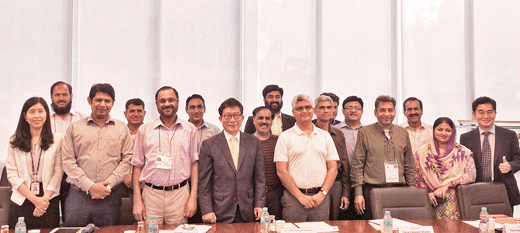
The United Nations Statistics
Division classified countries into
two major groups: “less developed
countries (LDCs)” and
“developed countries (DCs).” This classification is based on the country’s economic
indicator, GDP and per capita income.
However, this designation received some
criticism because it implies that less developed countries are inferior to developed
countries.
However, the UN explains that the
country designations “LDCs” and “DCs”
are simply intended for statistical convenience and do not express judgment about a
member country’s economic state. A less
developed country is also called a developing country.
To name a country according to its special economic features, a new term, “an
emerging market economy” was created in
the 1980s. An emerging market refers to a
country that has some characteristics of a
developed market but does not meet the
standards of a developed market economy.
In the aftermath of the Asian financial
crises in 1998 and 1999, developing and
emerging countries began to strengthen
their policy to attract foreign direct investment (FDI). They had strongly believed
that FDI inflow was the short cut to
achieving sustainable growth.
In recent years, these countries have
learned that not only should they attract
foreign firms with advanced technology to
accelerate industrialization, but they
should also try to keep the FDI in the
country for a longer period of time. This is
why developing countries have to provide
aftercare services for foreign-invested
companies operating business in the host
country.
On that note, Korea is cited as one of
very few countries that has adopted the
Foreign Investment Ombudsman system
in 1999. This system was established by
the Foreign Investment

Promotion Act.
The Office of the
Foreign Investment Ombudsman
focuses on preventing and
settling various grievances facing foreign
investors. The team is comprised of professional specialists, including lawyers,
accountants, financial analysts and labor
counselors.
On August 25, a delegation of 14 high-
ranking officials from Pakistan visited our
office. The delegates, who wanted to learn
about the Foreign Investment Ombudsman
system, were from the Ministry of Finance
and the Department of Planning and
Development and Economic Coordination
of Presidential Office. They were amazed
to learn that foreign investors in Korea
have influence in the process of enacting
new laws and regulations related to foreign
investment.
Similarly, on August 29, another delegation
of 10 government officials from
Uzbekistan visited our office to learn about
the Korean Ombudsman system and the
benefits available in the country’s Free
Economic Zones.
In the aftermath of the global economic
recession, a new phenomenon has prevailed. Even developed countries began to
attract FDI to increase their GDP and
employment rate. They have started offering
incentives for FDI from any country,
regardless of whether it has an economy
that is developed or still developimg.
According to the OECD’s recent publication,
the inflow of FDI into developing
countries in Asia was USD
410 billion in 2012. This amount has
been on the rise
since then, recording a 5.3 percent increase
in 2013, an 8.5 percent increase in 2014
and a 15.6 percent increase in 2015. A
similar phenomenon has occurred in
developed countries. The total amount of
FDI in the European Union was USD 250
billion in 2014, increasing by 93 percent in
2015 and 14 percent in 2016. In contrast,
the total FDI inflow into the OECD and
G20 member nations in 2014 was about
USD 440 billion. The amount increased by
64 percent in 2015 and 30 percent in 2016.
The competition for FDI attraction will
continue to increase in the coming years.
So the importance of FDI inflows for
developing countries and Korea must not
be overlooked.
The Foreign Investment Ombudsman and his grievance resolution body collect and analyze information concerning problems facing foreign firms, request cooperation from relevant government agencies, propose new policies investment promotion system and carry out other necessary tasks to assist foreign-invested companies in resolving their grievances.